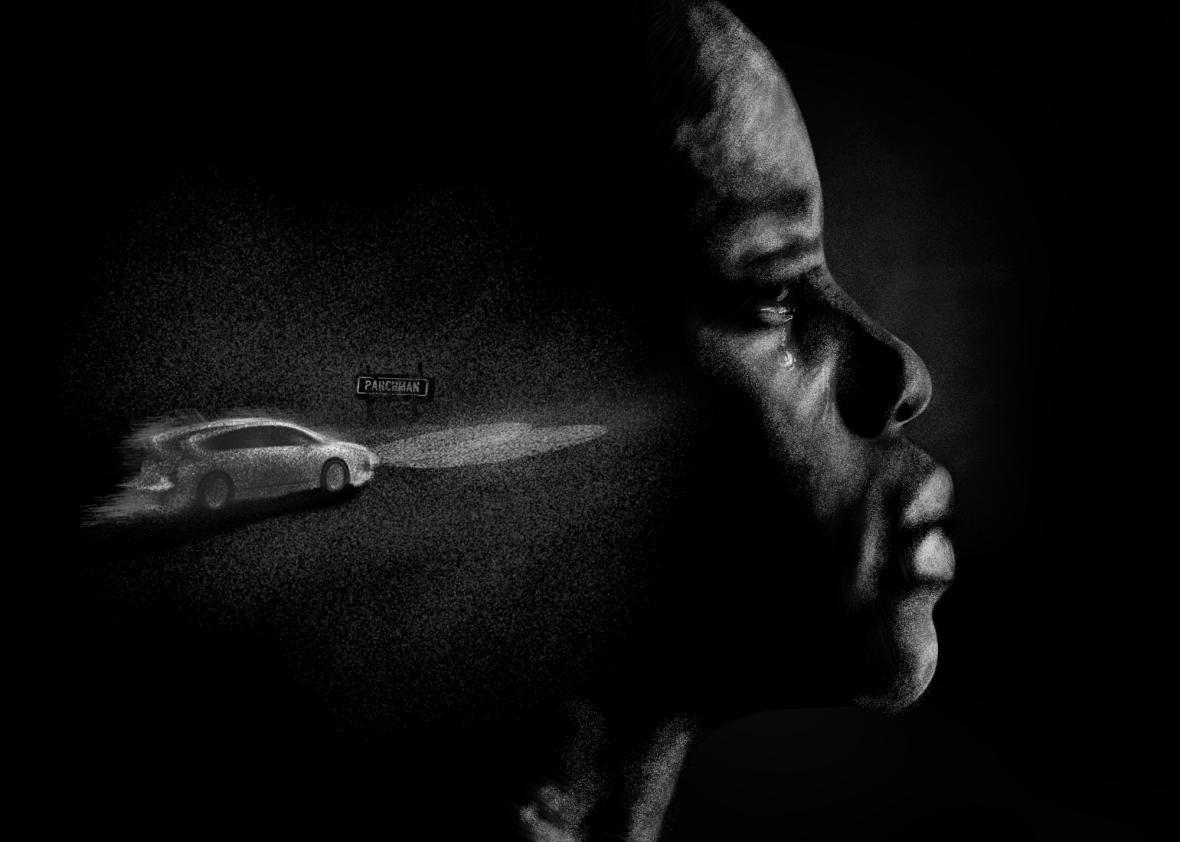There’s a strange temporal disjunction at the heart of Jesmyn Ward’s new novel, Sing, Unburied, Sing. On the one hand, its mother-son duo of protagonists, Leonie and her 13-year-old son, Jojo, speak almost entirely in the present tense, to the extent that sometimes they don’t seem to narrate the novel’s events so much as get swept along an inescapable current, captives rather than narrators. On the other hand, the past suffuses the entire novel; we can’t understand these events as anything other than the aftermath of earlier tragedies. The result is a novel of sweeping ambition in the tradition of Toni Morrison’s landmark neo-slave narrative, Beloved: an ornate ghost story about cultural memory, a parable for how history permeates the life of a community. Sing marks Ward as the sharpest voice in the contemporary conversation around the past’s relationship to the present and asks how black people can even begin to envision a future when the weight of history anchors them in ways they can scarcely begin to perceive.
For Leonie and her family, that burden is massive. When the novel opens on Mississippi’s Gulf Coast, they are all mired in grief. Leonie is haunted by the death of her brother Given, whom a white racist murdered 15 years earlier and whose voiceless specter visits her whenever she gets high. Her grief makes her a self-absorbed mother; Jojo and his baby sister, Michaela, suffer while she mourns, causing an irreparable rift between Leonie and her children. Leonie’s father, River, becomes Jojo and Michaela’s primary caretaker, but he is burdened by the memory of his time in the infamous Parchman Farm prison, where as a young man he made a horrific but necessary decision whose effects still scar him. Meanwhile, Leonie’s mother, Mam, lies bedridden, slowly succumbing to cancer; her commitment to voodoo practices and folk medicine are the only thing keeping her tethered to life.
Michael, the white father of Leonie’s children, is the only glimpse of catharsis on the horizon—at least for Leonie. When the novel opens he is serving time at Parchman. Soon Leonie gets word of his impending release and rushes to retrieve him, forcing her reluctant children and her white friend Misty to accompany her. The road trip to Parchman is Leonie’s faltering effort to reconstitute something like a happy family, to take her mind off past pains. Michael is far from a panacea, though: His parents are vicious racists who disapprove of his relationship with Leonie, and Michael himself is cousin to the man that murdered Given.

Sing primary oscillates between two perspectives—Leonie’s and Jojo’s—and access to both of their minds allows the reader a level of empathy neither mother nor son feel for each other. There is little trust or affection between the two. Reflecting on his mother’s inability to behave like a mother, Jojo wonders at the poverty of their relationship. “Sometimes,” he concludes, “I think I understand everything else more than I’ll ever understand Leonie.” For her part, Leonie often seems mortified by Jojo’s very existence, which functions as a source of ignominy, a constant indictment of her maternal failures. Every time Michaela—or Kayla, as Jojo pointedly insists on calling her—calls out for Jojo’s presence or reaches for the comfort of his body, Leonie is stung anew. Indeed, the boy often seems like more of a parent than Leonie. When Michaela gets sick and vomits during the road trip, Leonie comically tries to get the baby to drink water, Jojo standing sentry over her efforts all the while. When Leonie tries to dry Michaela after a bath, she feels Jojo behind her, “watching, like a blue jay mother, ready to dart in and peck if I do her wrong.”
Once Leonie and the children arrive at Parchman, a third perspective disrupts the tension between mother and child. Richie, a grieving child who was once incarcerated and whose spirit is anchored to the prison, attaches himself to Jojo and follows the family back home. He is a character both sympathetic and sinister, a mournful ghost whose melancholy is so powerful that it threatens to consume everything in its path. He’s the novel’s most clear nod to Beloved, a specter who evokes the past’s refusal to let the present loose.
Though only Jojo can see him, Richie’s presence exacerbates the family’s trauma. His tenure in purgatory at Parchman teaches him “time is a vast ocean, and that everything is happening at once”—and he cannot abide that. Richie is out to find his version of home, an intimate, womblike space that seems like the opposite of Parchman’s disorienting vastness. Richie desires something else, a place that will “pull you so close the space between you and it melt and ya’ll one and it beats like your heart.” It’s a declaration that bears a chilling resemblance to Beloved’s proclamation that she wants Sethe’s face. Like Beloved, Richie wants to have his story told properly: “The story of me and Parchman … is a moth-eaten shirt, nibbled to threads: the shape is right, but the details have been erased. I could patch those holes.” It’s an open question as to whether patching together that story would do the living more harm than good. Is the exhumation of untold stories a path to healthy mourning or another form of melancholy that will leave the living trapped in grief?
Richie’s ghostly presence metaphorizes the prison’s centrality in Ward’s vision of black history. Where Morrison presented slavery and the nightmarish Sweet Home plantation as the primal scene of black trauma, Ward gives us the criminal justice system and Parchman Farm; it is the novel’s linchpin, the source from which so many of its characters’ traumas stem. The prison’s substitution for the plantation suggests a historical continuity between the two, and Parchman’s history bears that out. The facility was built as a successor to the convict lease system that, after the Civil War, disproportionately imprisoned black men and forced them into labor under the guise of justice. The imagery surrounding the prison makes the continuity fairly explicit: Remembering his entrapment, Richie recalls landing “in a field of endless rows of cotton [and] men bent and scuttling along like hermit crabs, bending and picking.” In a time when America is increasingly aware of the criminal justice system’s role in perpetuating racial inequality, Ward has given us a parable for understanding the prison as a mechanism of racist control.
Sing is an expansive endeavor. Ward uses the novel as a form to weave together initially disparate stories into a tale of how the past can traumatize black people so fully that their lives hardly seem their own. The brilliance of Sing is that, in allowing these stories to cohere, it demonstrates that sorrows are never truly solitary. Rather, they spring from a common pain that we might be able to salve—if not transcend—by telling stories that official histories have long occluded.
However, Ward’s attempt to envision the shape of black history in the age of the criminal justice system occasionally comes at the expense of the narrative. Ward gathers so many potential stories that the novel threatens to become bloated. Sing encompasses myriad dramas that are all happening simultaneously—Mam’s impending death, Leonie’s conflict with Michael’s parents, Jojo’s emerging adolescence and supernatural abilities, River’s attempt to come to terms with his pain—that the novel can’t satisfactorily resolve them all. The novel’s sprawling plot leaves the reader wishing that Ward had focused her attention more pointedly on one story that could anchor the novel. Leonie’s story ends up being the most compelling and fully constructed. Like Esch, the protagonist of Ward’s 2011 novel, Salvage the Bones, Leonie is a young black woman in a world that ignores black women at best and hates them at worst. She suffers from invisible psychological wounds that neither she nor her family are capable of healing.
Part of the brilliance of Ward’s fiction is an attention to psychological complexity that gives her characters an astounding roundness. Such roundness seems revelatory when applied to black women, unveiling an emotional realm that the world conspires to hide. Even as Leonie careens from one self-destructive crisis to another, we remain sympathetic to her. Before heading to Parchman to retrieve Michael, Jojo watches Leonie relax her hair in preparation for Michael’s return and sees the burns that dot her scalp as a result of repeated chemical use. These moments accumulate into a portrait of a damaged woman. Scenes like this are Ward at her most potent. She litters the novel with painful glimpses into Leonie’s psyche; what we find is a woman struggling against the world’s hatred. The resulting scars are both manifest and invisible.
—
Sing, Unburied, Sing by Jesmyn Ward. Scribner.
